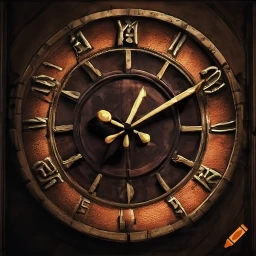Last week: Solving the Problem of Puzzles in RPGs
In far too many games, when players get a puzzle wrong, the GM’s answer is “you make no progress.” This creates a frustrating dead-end, or invites uninteresting brute-force solutions. Taking damage is slightly better, but isn’t much of a deterrent in new-school games where PCs have piles of HP and ample healing, and also may not work well for games where physical violence is rare or frequently fatal.
Puzzles should instead escalate the current situation. Downsides of failing a move in a PBTA game are good for ideas; phrases like “you leave something behind,” “you owe someone a debt,” or “you lose face with a faction.” In a dungeon or other dangerous or hostile space, it can be as simple as asking what other forces are at work here, and how the overall situation worsens for the PCs when they beef a puzzle.
Puzzles that were created intentionally and follow some kind of functional design should have safeguards. Puzzles that are natural, or unintentional, or represent the degraded or decayed version of a previously functional system, should present hazards.
You Cannot Have a Meaningful Puzzle if Strict Time Records are Not Kept
As with exploration and trapfinding, most puzzles depend on external time pressure. A tight clock applied to a puzzle can solve most of the problems I identified at the outset of this post. In a dungeon scenario, this can simply be part of the overall tracking of time within the dungeon, with the built-in penalty for dwelling too long in one space.
Cooldowns can also help. The computer terminal locks for an hour after three incorrect password entries. The temple inscription can only be read during a 15 minute period when the sun is directly overhead and shines through an aperture. If the PCs are going down the wrong path with their questions, the NPC who is the “voice” for the puzzle simply refuses to talk to them further until the next day.
Mister Police, I Gave You All the Clues
Any puzzle can be solved if the PCs find enough clues. The GM can give them more and more over time, up to and including giving them the whole answer… with two caveats.
The first caveat is that the answer should come piecemeal, broken up into many small bits. If the party solves it early, with fewer clues, they are essentially rewarded with time saved (again reinforcing the importance of time). If they don't solve it early, but stick with it, they will eventually get enough clues that the solution will become obvious.
The second caveat is that clues should be diegetic objects. They should not be the results of ability checks or similar mechanical output from the character sheets. Making them diegetic objects is a great way to take otherwise-irrelevant background information about the game and work it into the actual execution of the session.





No comments:
Post a Comment